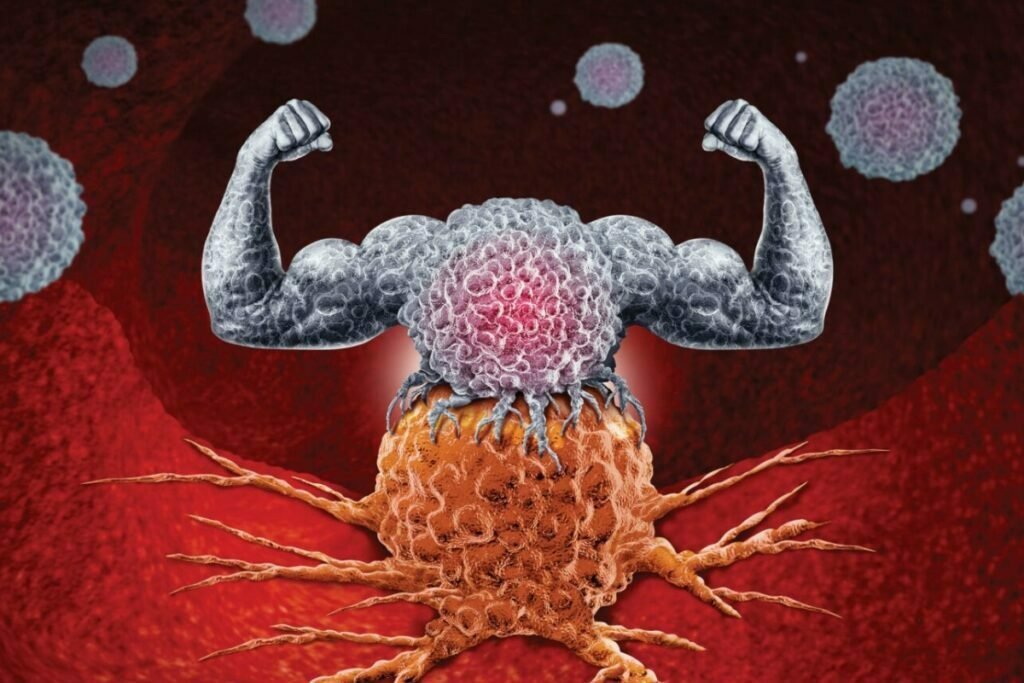ABSTRACT NUMBER: 6026
Recent studies have underscored the crucial role of the TGF-β signalling pathway in shaping the immune microenvironment during cancer therapies. For patients who face a grim prognosis and have developed resistance to previous immunotherapies, targeting this pathway with specific drug candidates offers a vital approach.
One such candidate is GFH018, a novel inhibitor of TGF-βR1 kinase. By blocking the activity of TGF-βR1 kinase, GFH018 can modulate the tumour immune microenvironment and disrupt the signal transduction of TGF-β.
Additionally, toripalimab, an anti-PD-1 monoclonal antibody, complements this approach by inhibiting the binding of PD-L1 to the PD-1 receptor. This interference reduces the ability of tumour cells to evade the immune system and, as a secondary mechanism, decreases PD-1 expression on T-cells, thereby restoring the body’s immune response.
To evaluate the efficacy, safety, and pharmacokinetics of this combination therapy, a multicenter study initiated by GenFleet was conducted. The study enrolled patients who had previously failed on a line of therapy and administered 80 mg of GFH018 twice a day in a 14-day-on/14-day-off regimen, in combination with toripalimab. Tumour assessments were conducted every 8 weeks based on the response evaluation criteria in Solid Tumours. The primary endpoints were the incidence of dose-limiting toxicity (DLT) events and the objective response rate (ORR).
The results, presented at ASCO 2023, revealed an overall response rate (ORR) of 31.3% among 32 patients who underwent post-baseline tumour assessments. The disease control rate (DCR) was 50%. Among the 17 patients who had never received immune checkpoint inhibitor (ICI) treatment, the median progression-free survival was not reached, with an ORR of 47.1% and a DCR of 64.7%. In contrast, the 15 patients who had previously received ICI treatment exhibited an ORR of 13.3%, a DCR of 33.3%, and a median progression-free survival of 1.4 months.
Four patients who had previously received ICIs discontinued the study without undergoing any post-baseline tumour assessments due to adverse events, while five subjects were premature for tumour evaluation.
In terms of safety, eleven individuals reported adverse events of Grade 3 or higher, and 82.9% of patients experienced treatment-related emergent adverse events of any grade. Approximately 13.7% of patients experienced immune-related adverse effects, including anaemia, rash, hyponatremia, elevated AST, low white blood cell count, and exhaustion. Notably, one patient experienced a Grade 5 acute myocardial infarction, which could be attributed to tumour metastasis, a compromised immune system, or another underlying condition.
These findings highlight the potential of combining GFH018 and toripalimab as a therapeutic strategy for immunotherapy-resistant patients. The observed ORR and DCR, along with manageable adverse events, suggest the promise of this combination in addressing the challenges faced by patients who have not responded to previous immunotherapies.





























